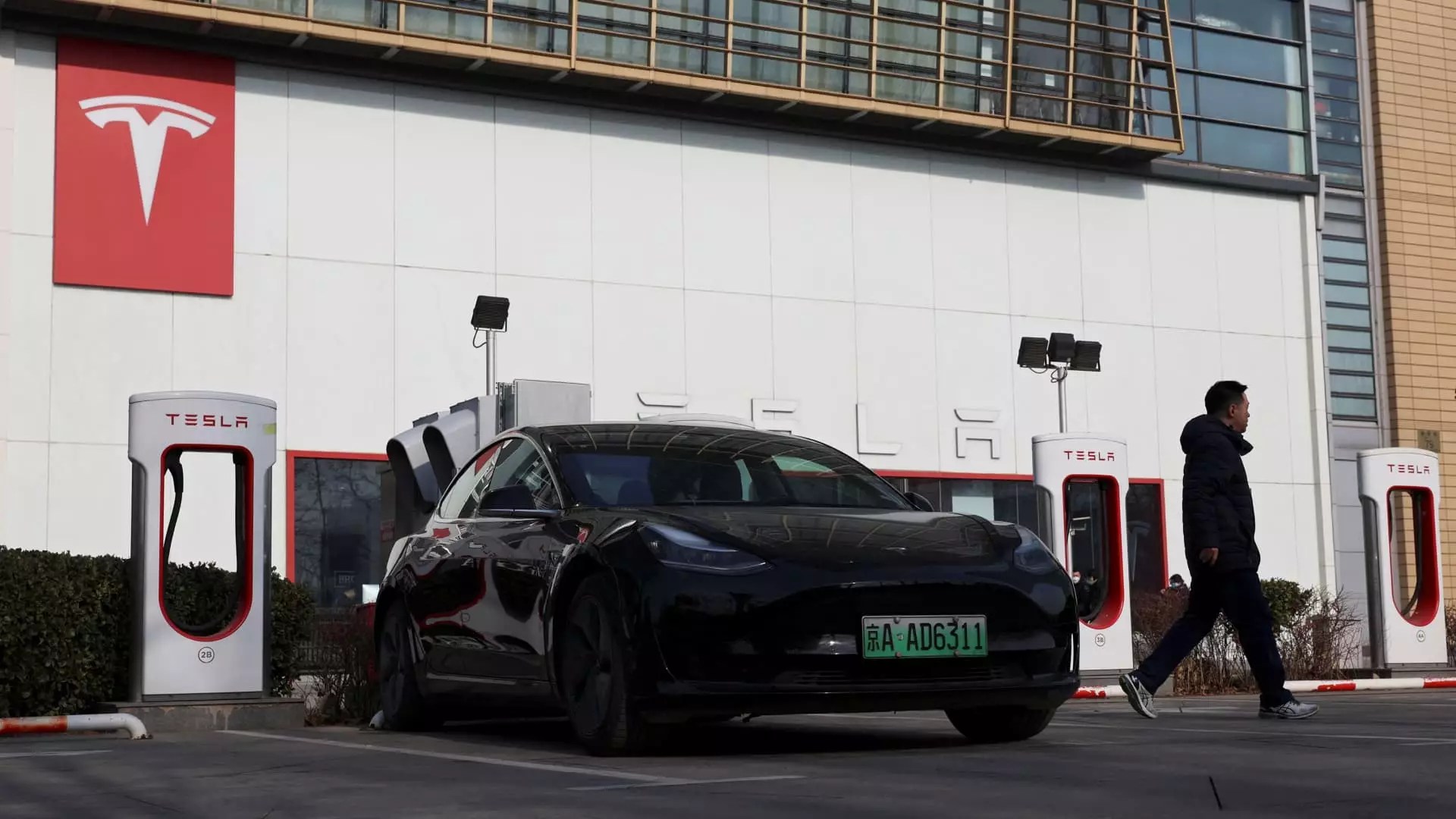As we approach 2025, a significant upheaval looms over China’s automotive sector. The traditional automotive giants—both foreign and local—are beginning to see their foothold eroded by local electric vehicle (EV) manufacturers. The tide appears to be shifting decidedly in favor of homegrown firms like BYD, which is rapidly solidifying its dominance in the new energy vehicle market. A recent report by Nomura indicates that while foreign brands are dwindling in relevance, domestic companies are seizing the moment to enhance market share, positioning themselves as the future of auto manufacturing in China.
Nomura’s forecast for 2025 reflects a growing acknowledgment that locally produced EVs are not just here to stay; they’re poised to further entrench their market leadership. For instance, indicative of BYD’s ascendance, the company has claimed 16% of the overall Chinese automotive market by October 2023, signaling a notable rise from 12% the year before. With BYD’s impressive sales figures, combined with its current improvements in revenue, it’s not hard to see why analysts are bullish on this company, considering it a bellwether for the future of the industry.
As a testament to BYD’s growing prowess, the company has achieved quarterly revenue surpassing that of Tesla, a significant landmark for a Chinese manufacturer amid a historically Western-dominated industry. This marks a critical moment; for the second consecutive year, BYD has outpaced Tesla in total production numbers, highlighting a fundamental shift in consumer preference. However, it’s essential to note the differences in product strategies. Tesla remains the market leader in battery-only vehicles, whereas BYD’s portfolio is distinguished by a blend of hybrid vehicles that constitute a substantial portion of its sales.
Comparative sales figures illuminate the contrast in trajectories between these two giants. Tesla has seen a decline in sales in China, with a 4.3% drop noted in November year-over-year, while BYD has recorded a staggering 67% sales surge during the same period. Such dynamics underscore an essential narrative: the local player is not only challenging but successfully outmaneuvering its foreign counterparts.
While BYD races ahead, Geely, another key local player, holds the second spot in market share, though it lags far behind with 8%. Analysts from HSBC have backed Geely’s growth trajectory, optimistic that it will meet its production target of 2 million units and enhance its electric vehicle penetration rate to 40%. With ambitions to ramp up its sales to 2.6 million units in the coming year, Geely’s strategy seems viable given the evolving demands of the market, particularly the demand for efficient, battery-powered vehicles.
In stark contrast, traditional automotive brands are grappling with their decline in this fiercely competitive arena. General Motors, a longstanding player in the industry, has announced a restructuring plan impacting its joint venture with SAIC Motor Corp., anticipating substantial financial losses as it closes plants in response to dwindling market share.
While big names like BYD and Geely dominate discussions about the future of China’s automotive landscape, the rise of electric vehicle startups cannot be overlooked. Companies like Hong Kong-listed Yongda, which collaborates with tech giant Huawei, are indicative of a trend where partnerships enhance market capabilities, particularly through technology integration. Despite Huawei’s assertions of not being a car manufacturer, its automotive initiatives have ushered in a wave of hybrid and battery-only vehicles equipped with cutting-edge technology. These collaborations not only drive innovation but also showcase the synergetic potential of merging automotive skill sets with technological expertise.
Yongda’s operational expansions, including forecasts to surpass 1 million unit sales in the next year, speak volumes about the growing sector’s dynamism. Moreover, the emergence of electric vehicle startups has altered the market landscape, intensifying competition and challenging established norms.
The dynamics of the electric vehicle market in China underscore a pivotal transition wrought by domestic manufacturers outpacing their foreign counterparts. Analysts are eyeing various entities within this eclectic mix, with buy ratings evident for companies like Nio and Leapmotor, as innovative strategies blend with competitive production techniques. Leapmotor, for example, is being recognized for cost-effective R&D practices that could set a precedent for other startups.
As we delve deeper into 2025, the Chinese automotive landscape seems poised for a dramatic reshaping. The strategic movements of local entities like BYD and Geely, augmented by burgeoning startups navigating a tech-driven market, indicate that the narrative of automotive supremacy is tilting significantly towards homegrown success. This transformative journey heralds profound implications not only for the domestic market but also for global automotive trends and future consumer choices.


Leave a Reply